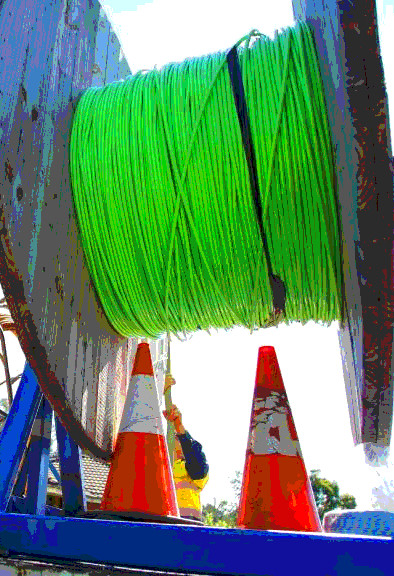NBN 'fair' value set at $8.7b
 The NBN has been valued at less than a third of its cost so far.
The NBN has been valued at less than a third of its cost so far.
A report by the Parliamentary Budget Office (PBO) has looked at the rise in “alternative funding” of government policies, seeking to understand the impact of the government’s investments on its balance sheet.
Alternative funding mechanisms - such as equity injections, loans and guarantees - are becoming increasingly popular for governments trying to get major projects and policies rolling without the cost sitting directly on its budget books.
The PBO has a strong interest in this area, as part of its job is to bring transparency to spending and fiscal measures.
The office says calculating “the history and budget impact of a particular arrangement” requires data to be drawn from multiple - potentially incomplete - documents.
“In the Australian context, a lack of transparency presents a risk that decision making on the most appropriate funding arrangement for a given policy could be influenced by its budget treatment and presentation,” the PBO says.
“It also makes it more difficult for some significant elements of government spending to be scrutinised and effectively evaluated.
“Regardless of the financing arrangement used to fund a policy, to have a robust decision-making process, parliamentarians and the public need to be able to assess and understand the full costs involved (noting these may be realised or estimated costs).”
The NBN has received funding from two alternative funding mechanisms - $29.5 billion in equity from the government and a $19.5 billion loan that it eventually has to refinance.
The PBO’s new report explores the “fair value” of NBN Co, which the Department of Communications publishes without context in its annual reporting. The fair value of the network has been placed at $8.7 billion.
“Fair value is defined in Australian accounting standards as the price that would be received from the sale of an asset or the price paid to transfer a liability in an orderly transaction between market participants,” the report states.
The PBO says that when it comes to the national broadband network, “the fair value of NBN Co has been consistently below the cumulative amount of equity injected into the company”.
“The equity injected into NBN Co is not captured in the fiscal or underlying cash balances, but is included in the headline cash balance,” the PBO said.
“The total equity that has been invested in NBN Co is $29.5 billion. The most recent fair value estimate of NBN Co, as at 30 June 2019, was $8.7 billion.
“The $20.8 billion difference between the amount paid and the current fair value is a revaluation. It reflects the extent to which the Commonwealth Government’s balance sheet has directly deteriorated as a result of this investment as at 30 June 2019.
“By definition, this impact is not captured in the fiscal or underlying cash balances, though it is captured in net financial worth. This value is a point-in-time estimate and may change in the future.”
The PBO says; “Before a project is fully operational, the best information on its potential sale price is the fair value of the project in the audited financial statement”.
“Any revisions to fair value over time are classified as revaluations, and they affect the Commonwealth Government’s fiscal position,” the office said.
“Transparency around the fair value of these investments can assist parliamentarians to understand the total costs associated with such projects and inform decisions about similar investments in the future.”







 Print
Print